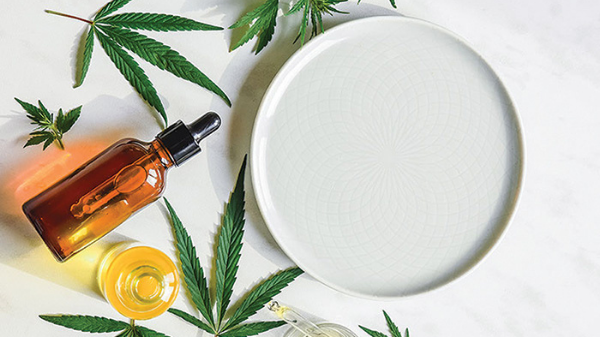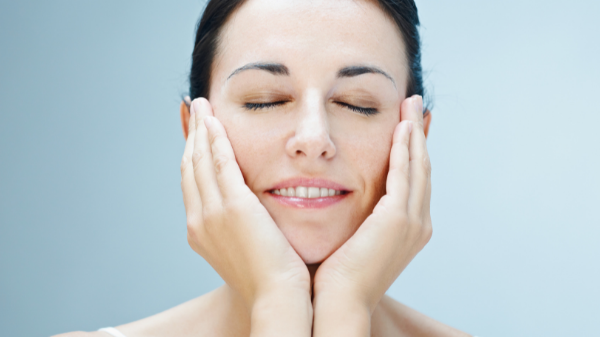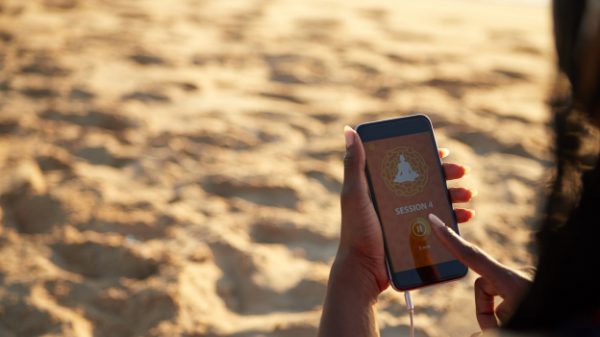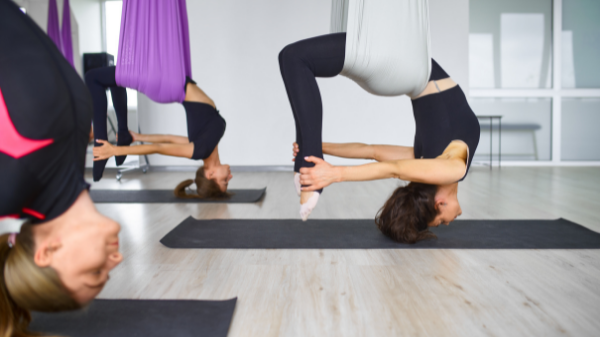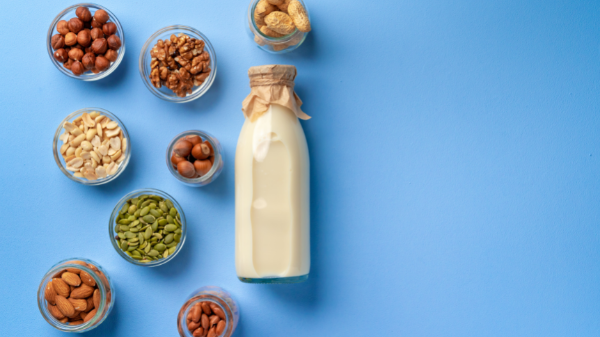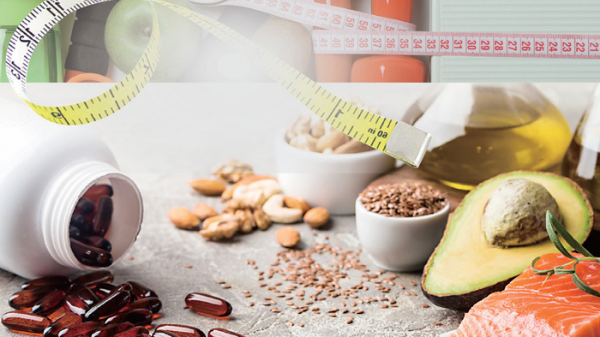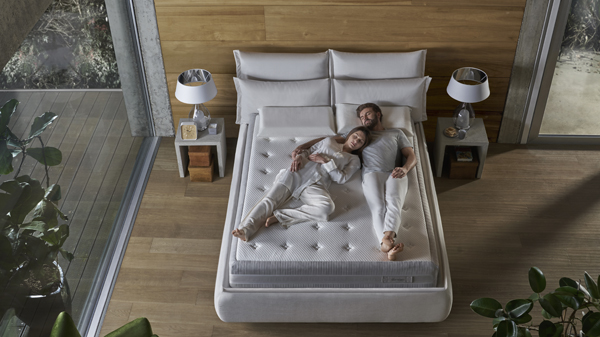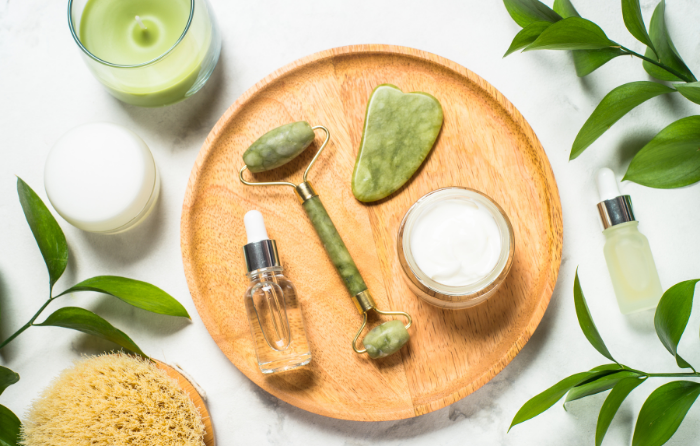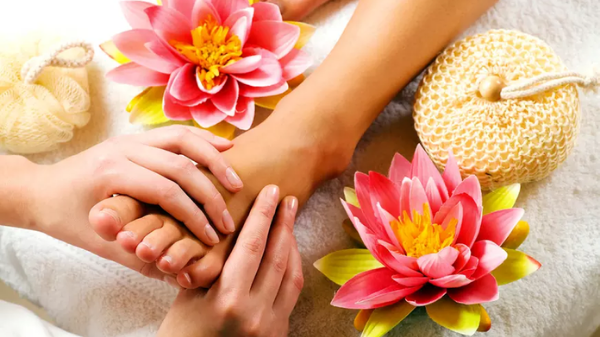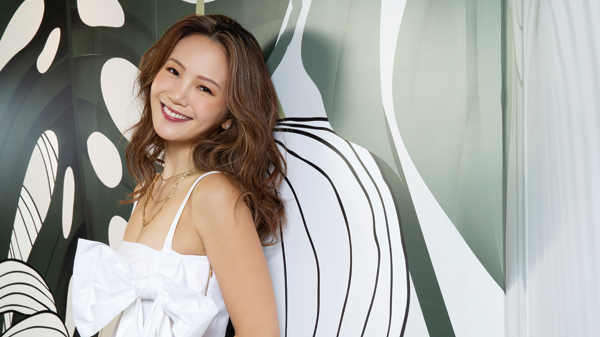Cannabidiol, a chemical found in the cannabis plant, has turned from a taboo into a trend. CBD, as it is popularly known, is now considered desirable, not dangerous. From yoga studios, cafés, tinctures, topicals, gummies, pet treats and even tampons, it has infused its way into people’s lives the world over. It is ingested and applied to ease all sorts of ailments including anxiety, pain, depression and insomnia, and is a star product in some beauty routines. Ultimately, though, despite its prevalence in the health and beauty industries, the jury is still out on whether CBD is effective.
CBD products can now be found in everything from coffee and skincare products to cosmetics. Sceptics may worry about its potency and question its potential for good, but there is no doubt that its popularity was kickstarted by the 2018 Farm Bill in the United States, which legalised CBD derived from the hemp plant (but not the cannabis plant), spawning product upon product in its wake. The surge in the availability of these products soon trickled down to other countries where this ingredient is legal, such as Hong Kong.
Legality and regulation are two different matters. Legally, hemp is defined as a cannabis plant that contains 0.3 percent or less of the psychoactive chemical tetrahydrocannabinol, or THC, while marijuana is a cannabis plant that contains more than 0.3 percent THC. However, there is no guarantee that hemp-derived products won’t contain THC, due to factors such as cross-pollination and a lack of industry regulation. The risk of CBD products containing THC poses a number of concerns, not least that you may test positive for drug usage. In work environments or sports, where drug testing is part and parcel of life, it is possible that THC could show up when a person has not used marijuana but has ingested cannabidiol.
It is a common misconception that CBD produces a high. Marijuana users seeking an altered state of mind have THC to thank for that. Cannabidiol is non-psychoactive, accounting for its greenlit for use in many countries. Thus, in Hong Kong it is not prohibited under the Dangerous Drugs Ordinance, though local sellers of CBD products are still required to ensure that their products are THC-free.
Also Read: Unusual wellness therapies to try in Hong Kong.
Cannabidiol interacts with the body’s own endocannabinoid system through two known receptors: CB1 and CB2. CB1 receptors are present in the brain and the central nervous system, while CB2 receptors are abundant in the immune, gastrointestinal, brain and peripheral nervous systems. The exact way in which CBD affects us is unknown, but scientists speculate that it encourages the body to produce more endocannabinoids, which could potentially reduce anxiety, pain and inflammation.
The coveted ingredient has been praised for numerous benefits, but the strongest evidence of its medical effectiveness has been in the treatment of epileptic disorders such as Dravet Syndrome and Lennox-Gastaut Syndrome. In several studies, CBD was able to reduce the number of seizures, and in some cases stop them altogether. It has also been used medically to tackle depression, anxiety, insomnia, inflammatory conditions and chronic pain.
Although it has become a go-to substance for consumers seeking pain alleviation, most scientific studies of CBD have been conducted on animals. Two studies published in the European Journal of Pain using animal models found that applied topically, CBD can help lower pain and inflammation from arthritis, and lessen inflammatory and neuropathic pain respectively. Further human trials, however, are required to vindicate claims that cannabidiol is effective in controlling pain.
Beyond pain control, CBD has become a leading ingredient in many beauty products. With the resurgence of natural and sustainable beauty, consumers have become hyper-aware of what lies within their everyday make-up and skincare potions. Natural ingredients like CBD score brownie points for cosmetics companies.
The bigger question at hand, though, is whether CBD effectively boosts beauty or is just another beauty trend. Many consumers claim that CBD has been the saving grace of their daily regimen, but is this anecdotal evidence supported by factual proof? Although the benefits of using CBD beauty products are largely unproven by science, there is a rationale for their application. Skin issues and ageing are caused by damage to the epidermis, and skin inflammation results from irregularities in the endocannabinoid system. CBD acts as an antioxidant and anti-inflammatory, and as such is credited with regulating oil production, reducing inflammation and hydrating dry skin.
Also Read: Five surprising ways hypnotherapy can benefit your health and well-being.
For adventurous locals seeking to get their hands on some CBD, Lane Crawford is a great place to start. The department store carries the popular brands like Treaty, Saint Jane Beauty and Nature of Things. Online, there’s Gentle Bro, a Hong Kong CBD lifestyle store that sells a wide range of said products, including goodies for your canine companions.
CBD has also become a defining ingredient in many food and beverage items too. Acclaimed Hong Kong craft beer manufacturer Young Master recently launched the CBD-infused HEA line. Oh CBD Beer, another Hong Kong brand, can also be bought online, or at pop-ups at the likes of Famaland. Going beyond beer, Found is Hong Kong’s first CBD café. In addition to tempting customers with cannabidiol-infused coffees, drinks, pastries and chocolates, it also sell oils, capsules and creams. Coffee Analog is another café that serves seasonal CBD coffee – a brew to match its relaxing wood interiors. Famed Hong Kong chocolatier Conspiracy Chocolate offers vegan chocolate bars in which CBD isolate and hemp seeds add to the 75 percent cacao content. This chocolatey rush is available from its online shop or at a host of local retailers.
Whether for pain relief, to beautify or just for the taste, the buzz about cannabidiol is gathering pace. Yet, despite a plethora of positive reviews and testimonials, it is an experience that remains a personal choice and may not be suitable for everyone. The fundamental question remains unanswered: is CBD really an effective all-purpose ingredient, or just another fleeting trend that will soon fade from the public consciousness? Certainly, it would benefit from additional human trials and more diligent regulation. If you do try it, discuss it with your doctor beforehand and ensure you conduct adequate research on the product, and the brand that has piqued your interest.
Also Read: Eye Yoga: Is this latest wellness trend a gimmick or godsend?
(Text – Nadia Ho)



